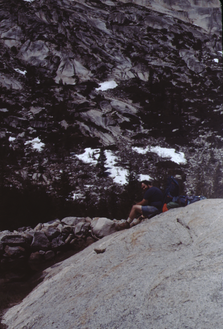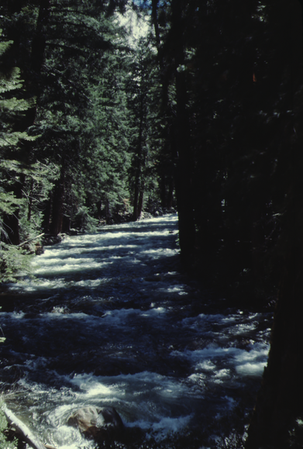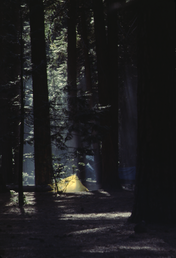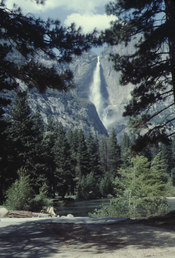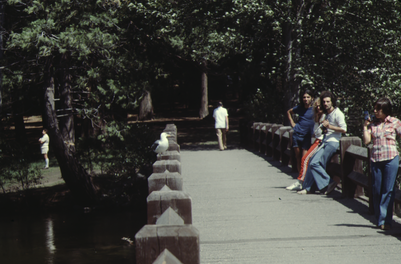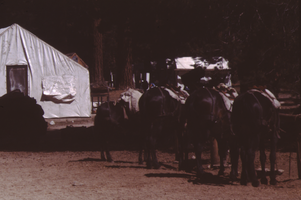
Yosemite on Ice
Backpacking with a friend 1978
Igor’s was not his real name, but he looked like an Igor. He was an old friend from college who I often would join on adventures to museums, jazz clubs, and the like in Chicago. This adventure was, obviously, going to be different. I had been backpacking once before, also in Yosemite National Park, but that didn’t make me an expert. Igor, I don’t think, had ever been.
My first trip into the high country was strictly an amateur affair. The equipment was very cheap because I didn’t have any money. I tried to climb out of Yosemite Valley the hard way on the first day, two thousand feet straight up. I didn’t make it and my pack hurt my back. Then it rained for three days.
When Igor and I arrived, we pitched our tent amidst the gaggles of tourists sunbathing and playing frisbee under the pines in Yosemite Valley, a U shaped glacial valley of incredible beauty. Waterfalls tumbled from the granite heights above, their waters joining the Merced Rived on the valley floor.
A day or two later we began our hike along the Merced, climbing up toward the crest of the Sierras where several peaks in the national park top 10,000 feet. Waterfalls cascaded from the heights all around us as we passed the many day hikers, stopping at Little Yosemite for the night. Almost everyone we passed or had stopped to camp here was out for a day hike or for one or two days at the most. We pitched our tent under massive trees near the river. Little Yosemite is a long, flat space along the Merced, and that makes it a favorite place to stop on the first night. The other backpackers were doing the same thing we were, making a gradual climb out of the Valley instead of trying to go up the walls of the 2000 foot high cliffs that loomed above us.
A crowded camp like Little Yosemite means there is food present, and that means so are bears. Late in the afternoon, we watched two bears, one large and the other small, swim across the river just above us. All the camper/ backpackers had hung their food from trees as they were supposed to, but some did a better job than others. We watched as the bears paused at a camp site two spots above us. The big one, who was clearly providing instruction to the younger bear, sat under the food bag, its gaze following the rope from which it was hung to a small nearby tree. It walked over to that tree and started to pound on the rope with one of its massive paws.
The rope broke and the bag fell. The big bear picked up the nylon bag and, with the little bear following, carried it to some nearby bushes next to the river. The bushes rustled every few seconds and a piece of paper or bag that had held food would come flying out. Having had their appetizer, the bears went off, bypassing us, in search of a main course.
After a couple of days of hiking we fell into a rhythm. I tended to watch my feet to keep from stepping into a hole or on to a rock, twisting my ankle. Walking that way though, I missed the beauty of the mountains. We slowed down and began noticing the flowers, trees, and rocks. We gradually forgot all the things that were troubling us in the “real” world as we spent days putting one foot before another. I started to focus on the things that were really important like the weather, which pocket I had put the knife in, and where we would stop for the night. I had finally learned one of the most important lessons of the mountains, there are few things more important than beauty, and here it is all around you. It’s in the trees, rocks, birds, and water. Slow down. There is nowhere else you must be. Live.
We were climbing and waterfalls we had seen above us were now below. A day or two later, we were just below the timber line, the elevation above which trees will not grow, and hiked through patches of snow melting in the summer sun. It was shorts and T shirt weather. Under the trees, the forest floor was a riot of red, yellow, and white flowers. Stellar Jays watched for opportunities to steal food, and ground squirrels scurried by. The Merced River was always on our right, ice cold and splashing and racing toward the Valley. We hadn’t seen anyone in a couple of days, a departure from our regular existence and a welcome one.
We spent a night at Washburn Lake, and then continued south and up. Late in the day we camped by a braided stream, its water running through several small channels, pausing to sit in pools carved out of bare rock. Hot and sweaty, we sat in one of the pools where the stream water, normally ice cold, became bath water in the hot mountain sun. We had a snowball fight while sitting there, using the snow that lined the pool of meltwater.
Magnificent snow covered mountains surrounded us, their knife like peaks piercing the deep blue sky. The next morning, the bathtub from the day before was frozen over and we were now hiking through sparse patches of trees and snow that was, at times, knee deep. Not long after, we reached the tree line, and our world was snow and granite.
It was time to go back down and we packed up to begin the trip back to civilization. That afternoon we encountered Bruce, the leader of about 20 boy scouts hiking in the shadow of the Cathedral Range. Bruce and his charges made camp a short distance away from us one night. While we didn’t talk to them, it was evident that Bruce ran a tight ship. I’m sure you have to with 20 adolescents in the mountains. When they broke camp in the morning, every boy knew his role. At the end of the orchestrated packing up, Bruce had his charges form a line shoulder to shoulder and walk the entire camping area picking up every bit of debris left there, regardless of who forgot to clean it up. They had been taught well to leave no trace.
The next two days were spent walking along streams down towards Yosemite Valley. We were now below the snow and back in the trees, the air again filled with the scent of pine. When we stopped for the night one or two days out of the Valley, Igor started to build a fire. He was using the hand axe to chop some small logs and my back was to him when I heard a muffled cry. The axe had bounced off the branch he was working on and into the calf of his left leg. There was a lot of blood.
We stopped the bleeding by applying pressure and bandages and elevating his leg. He was comfortable, but there was no way he could walk without tearing his leg open. I couldn’t carry him very far, so there was only one option, I needed to find help if we were going to leave the Valley in time to make our flight home. The “real” world was intruding.
It was too late to start that evening, so we used the time to remove anything unnecessary for a day hike from my pack so I could travel lite and fast the next morning. Igor had plenty of food and water, so he would be fine.
At daybreak I started out for the Valley which, carrying only a small bag of food and water, I should be able to make by nightfall. I had only gone a couple of hours when I crossed paths with two rangers on horseback. I explained what had happened and led them back to Igor. They put him, together with his pack, on the back of one of the horses and took him out. I, however, had to refill my pack that had been emptied the night before, and walk out.
They patched him up in Yosemite Village and he slept in one of the large tents. I got to walk out, collect his gear, and sleep in the campground. I jokingly accused him of staging the accident, but it wasn’t funny.
Back in San Francisco, we treated ourselves to, what else, a dinner that had not been freeze dried. It’s every backpacker’s fantasy after days spent in the backcountry.

